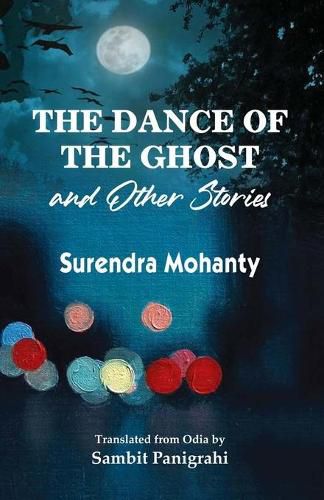Readings Newsletter
Become a Readings Member to make your shopping experience even easier.
Sign in or sign up for free!
You’re not far away from qualifying for FREE standard shipping within Australia
You’ve qualified for FREE standard shipping within Australia
The cart is loading…






This title is printed to order. This book may have been self-published. If so, we cannot guarantee the quality of the content. In the main most books will have gone through the editing process however some may not. We therefore suggest that you be aware of this before ordering this book. If in doubt check either the author or publisher’s details as we are unable to accept any returns unless they are faulty. Please contact us if you have any questions.
This book is a work of translation, from Odia to English, of a few short stories collected from the immense body of writings by eminent Odia writer Surendra Mohanty. Kaleidoscopic in nature, it exudes a multiplicity of themes including mythological, social, political and personal. The anthology contains tales based on Buddhist mythology, on episodes from the great Indian epic The Mahabharata while some others are based on personal, social and political themes. Some of them evoke personal emotions pertaining to the writer’s own life and re-enact episodes and events from his bygone past; the title-story The Dance of the Ghost is its prime example. On the other hand, a story like Amrapalli is based on the tragic life a significant and renowned historical persona by the same name whereas a story like Srikrishna’s Last Laugh centres around a less-known and almost forgotten episode of the illustrious Indian epic The Mahabharata. Contrary to the above-mentioned themes, a story like The Miner is entirely based on tribal life and culture while depicting the trials and tribulations of the old tribal protagonist who struggles desperately for his survival in the midst of relentless cultural decadence and corrosion. He is helplessly caught in the interstices of a changing time where his traditional culture is invaded by modernity and the world of pristine Nature in which he used to live is under the verge of complete annihilation due to the encroachment of corrosive modernist and industrial culture.
Thus, the book presents itself as a kaleidoscopic compendium of tales where stories of different themes, tastes and concerns are included in the anthology. This work is also an attempt on the translator’s part to make a regional author of eminence enter into the cosmopolitan arena of readership while enabling global readers to explore into the enormous and unexplored literary firmament of another region, of another culture, of another language. Expectedly, this work would form an enriching symbiosis between different cultures and knowledge systems, would bridge the gap between ensconced cultural and linguistic territories, would exchange knowledges and transfer ideas.
$9.00 standard shipping within Australia
FREE standard shipping within Australia for orders over $100.00
Express & International shipping calculated at checkout
This title is printed to order. This book may have been self-published. If so, we cannot guarantee the quality of the content. In the main most books will have gone through the editing process however some may not. We therefore suggest that you be aware of this before ordering this book. If in doubt check either the author or publisher’s details as we are unable to accept any returns unless they are faulty. Please contact us if you have any questions.
This book is a work of translation, from Odia to English, of a few short stories collected from the immense body of writings by eminent Odia writer Surendra Mohanty. Kaleidoscopic in nature, it exudes a multiplicity of themes including mythological, social, political and personal. The anthology contains tales based on Buddhist mythology, on episodes from the great Indian epic The Mahabharata while some others are based on personal, social and political themes. Some of them evoke personal emotions pertaining to the writer’s own life and re-enact episodes and events from his bygone past; the title-story The Dance of the Ghost is its prime example. On the other hand, a story like Amrapalli is based on the tragic life a significant and renowned historical persona by the same name whereas a story like Srikrishna’s Last Laugh centres around a less-known and almost forgotten episode of the illustrious Indian epic The Mahabharata. Contrary to the above-mentioned themes, a story like The Miner is entirely based on tribal life and culture while depicting the trials and tribulations of the old tribal protagonist who struggles desperately for his survival in the midst of relentless cultural decadence and corrosion. He is helplessly caught in the interstices of a changing time where his traditional culture is invaded by modernity and the world of pristine Nature in which he used to live is under the verge of complete annihilation due to the encroachment of corrosive modernist and industrial culture.
Thus, the book presents itself as a kaleidoscopic compendium of tales where stories of different themes, tastes and concerns are included in the anthology. This work is also an attempt on the translator’s part to make a regional author of eminence enter into the cosmopolitan arena of readership while enabling global readers to explore into the enormous and unexplored literary firmament of another region, of another culture, of another language. Expectedly, this work would form an enriching symbiosis between different cultures and knowledge systems, would bridge the gap between ensconced cultural and linguistic territories, would exchange knowledges and transfer ideas.